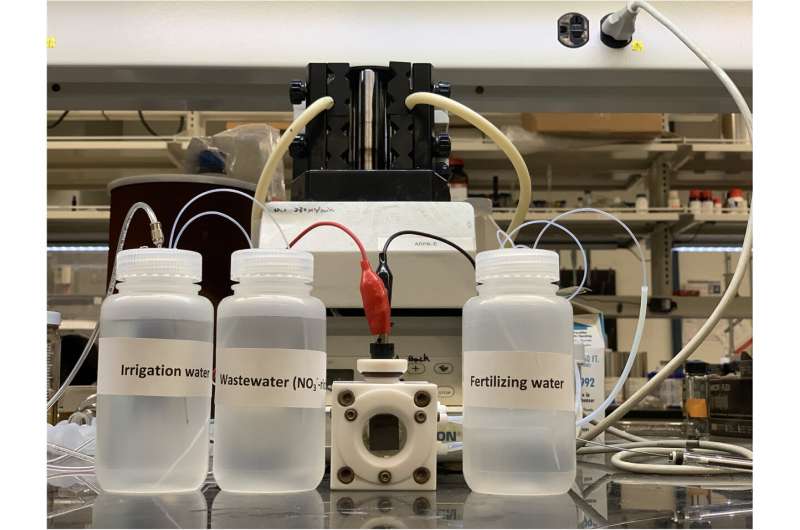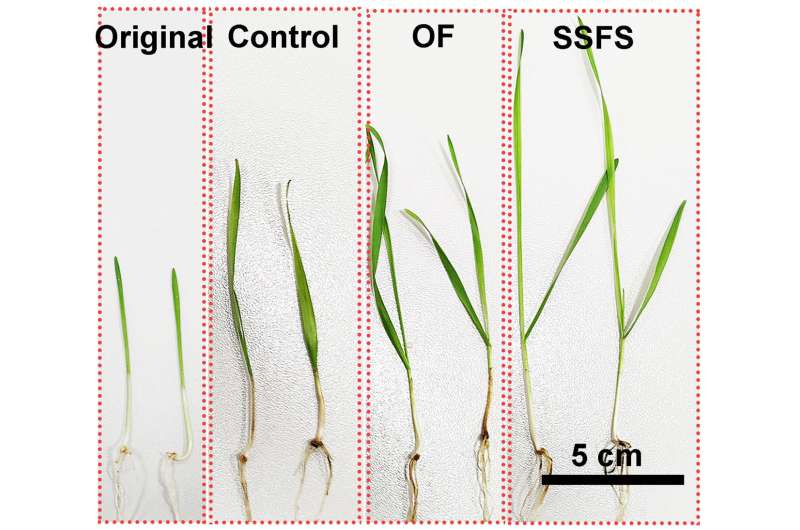Researchers at The University of Texas at Austin have developed an innovative farming system that addresses the issue of overusing fertilizers to improve crop yields and the resulting pollution caused by chemical runoff. This smart farming system utilizes a copper-based hydrogel to capture excess nitrate waste from fertilizers and convert it into ammonia, a crucial component of fertilizers that can be reused. The system has been proven to achieve or exceed crop yields compared to traditional methods while minimizing environmental impacts.

The copper-based gel film not only converts nitrate waste into ammonia but also detects nitrogen levels in the soil. This detection capability helps determine the optimal time to drain nitrate from the soil to convert it into ammonia, preventing its escape and contamination of the surrounding environment. The researchers collaborated with agricultural experts to compare their smart farming system with traditional methods, and it was found that the system produced taller wheat and rice plants with larger leaves, along with reduced nitrogen runoff.

Excessive use of nitrogen fertilizers not only leads to environmental pollution but also inhibits crop growth. The smart farming system not only addresses environmental concerns but also improves crop growth by enhancing the efficiency of nitrogen absorption and utilization in plants. With the global population expected to increase by over 2 billion people by 2050, the need to produce enough food while minimizing harmful emissions is a major challenge. Smart farming technologies like this offer a potential solution.
The nitrogen pollution issue extends beyond farming and affects industries such as electronics production, food processing, and textile manufacturing. Capturing and recycling nitrate-heavy wastewater could have wide-ranging benefits in protecting water and air quality. The research conducted by the University of Texas at Austin builds upon previous breakthroughs in agricultural technology and sets the stage for integrating artificial intelligence into the farming platform to expand its capabilities and scale up fertilizing operations.
More information:
Panpan Li et al, A multifunctional copper single-atom electrocatalyst aerogel for smart sensing and producing ammonia from nitrate, Proceedings of the National Academy of Sciences (2023). DOI: 10.1073/pnas.2305489120
Citation:
Smart farming platform improves crop yields, minimizes pollution (2023, June 20)
retrieved 20 June 2023
from https://phys.org/news/2023-06-smart-farming-platform-crop-yields.html
This document is subject to copyright. Apart from any fair dealing for the purpose of private study or research, no
part may be reproduced without the written permission. The content is provided for information purposes only.
Denial of responsibility! TechCodex is an automatic aggregator of the all world’s media. In each content, the hyperlink to the primary source is specified. All trademarks belong to their rightful owners, and all materials to their authors. For any complaint, please reach us at – [email protected]. We will take necessary action within 24 hours.

Jessica Irvine is a tech enthusiast specializing in gadgets. From smart home devices to cutting-edge electronics, Jessica explores the world of consumer tech, offering readers comprehensive reviews, hands-on experiences, and expert insights into the coolest and most innovative gadgets on the market.


